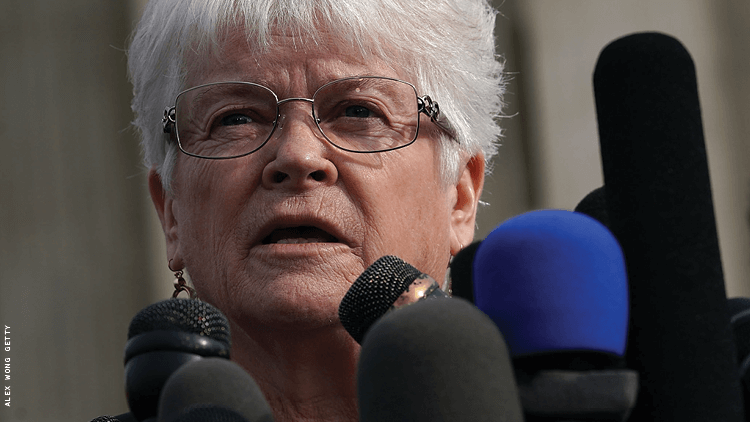The U.S. Supreme Court declined on Friday to hear an appeal made by a florist in Washington State who had been fined for refusing to make a flower arrangement for a same-sex wedding ceremony. The florist cited her Christian beliefs for refusing to make the arrangement.
Friday’s decision by the court is the latest example of it avoiding cases where LGBTQ+ rights and religious liberty arguments clash.
Justices Clarence Thomas, Samuel Alito, and Neil Gorsuch said they would have heard the case, reports the Associated Press.
Barronelle Stutzman, the owner of Arlene’s Flowers, had refused to make a floral arrangement for Robert Ingersoll’s wedding to Curt Freed in 2013. Ingersoll had been a longtime client of Stutzman’s, and the couple sued. The state gave Stutzman a $1,000 fine for violating its antidiscrimination laws. When she appealed, Washington’s Supreme Court ruled in favor of Ingersoll and Freed in 2017.
However, in 2018, the U.S. Supreme Court ordered the Washington courts to take another look at the case, following the high court’s decision in a different case involving a Colorado baker declining to make a cake for a same-sex couple’s wedding; it rule that Colorado authorities had shown insufficient respect for the baker’s religious beliefs. But the Washington Supreme Court found again in the couple’s favor in 2019, saying that in Stutzman’s case, the courts did not come to their decision due to animosity toward religion.
“No one should walk into a store and have to wonder whether they will be turned away because of who they are,” Ria Tabacco Mar, a lawyer with the American Civil Liberties Union who represented Ingersoll and his husband, said in light of Friday’s decision, according to NBC News. “Preventing that kind of humiliation and hurt is exactly why we have nondiscrimination laws. Yet 60 percent of states still don’t have express protections for LGBTQ people like the kind in Washington State. Our work isn’t over.”
The decision by the high court not to hear the appeal also comes after the court ruled unanimously in favor of a Catholic foster care agency on June 17 that said it would not approve same-sex couples to become foster parents. The agency had lost its contract to provide services for the city of Philadelphia, as its discrimination violated city law. The court did not establish a broad right to discriminate, but it said a provision in Catholic Social Services’ contract with Philadelphia allowed for an exemption from the antidiscrimination law, so the agency could still work for the city. Other agencies working for the city will certify same-sex couples.




